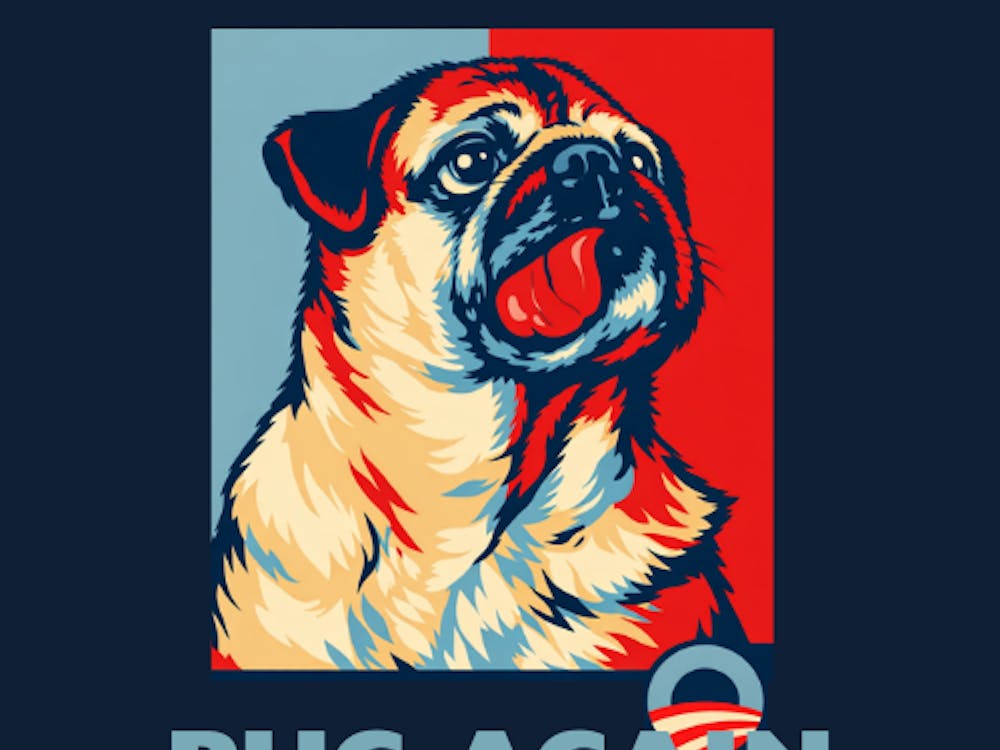This semester, the Undergraduate Student Government (USG) election cycle brought no new referenda to a student body vote. This formalized process for reform, however, has a long history of students bringing issues to the Princeton community.
As a vehicle for campus activism, some referenda have led to tangible change on Princeton’s campus, while others have incited campus conversation.
The Daily Princetonian looked back at referenda from the past decade to understand how the formal process for enacting change actually ends up affecting University policy, revealing the importance of the debates that referenda can generate and the importance of consensus in the campus community.
The hurdle of consensus: Divest Princeton and University Divestment
In 2020, campus activist group Divest Princeton put forth a referendum to bring to students the question of whether the University should divest its endowment from fossil fuel companies.
Ahead of the referendum, Divest Princeton issued an open letter titled “No Donations until Divestment” to President Christopher Eisgruber ’83, where signatories pledged to withhold donations from the University until and unless it commits to divesting from fossil fuels.
As of March 4, 3,254 alumni, faculty, students, staff, and parents had signed the group’s open letter to President Eisgruber.
In an interview with the ‘Prince,’ former co-coordinator of Divest Princeton Hannah Reynolds Martinez said that part of the organization’s unique strength is that it is alumni driven.

“There’s just this sense of ‘we’re not going anywhere,’” she said.
The November 2020 referendum asked students if undergraduates should call on the Board of Trustees and Princeton University Investment Company (PRINCO) to divest its endowment from fossil fuel companies that “spread or facilitate the spread of climate disinformation” and/or “develop or make plans to develop fossil fuel resources whose emissions would exceed Science Based Targets.”
The divestment question passed with 82 percent of students who voted in favor, according to Divest Princeton’s website.
Nearly two years later, on Sept. 29, the University announced that the Board of Trustees voted to disassociate from major players Exxon Mobil Corp., NRG Energy Inc., and 88 other corporations.

The announcement stated that PRINCO would “eliminate all holdings in publicly traded fossil fuel companies,” specifically identifying the thermal coal and tar sands segments of the fossil fuel industry for their exceptionally high carbon dioxide emissions.
Notably, disassociation includes divestment — reducing the $13 million the University directly invested in fossil-fuel corporations — as well as ending research partnerships with a financial component.
Reynolds explained that while it took two years after the referendum was passed for the University to take action, the referendum was critical in showing consensus on campus and getting a divestment proposal past the Resources Committee.
“The fact that we were finally able to get past that gave us a shot at getting the board to finally decide to divest,” she said. “That’s, I think, one of the biggest and clearest through lines to me — it showed this overwhelming support.”
Reforming the Honor Code
In 2017, the USG Academics Committee created a subcommittee to begin investigating the honor committee and honor code. Former Chair of the Academics Committee Patrick Flanigan ’18 remembers the campus attitude at the time as one that was “very much skeptical of the extreme power that was being vested in students and professors.”
The committee created a four-part referendum to bring forward in the winter election that included reducing the “standard penalty” to a one-semester suspension from a year-long suspension, requiring two pieces of evidence to be presented in order for a case to proceed to trial, prohibiting students from being found responsible of an Honor Code violation if their professor said it was allowed, and a new policy that Honor Committee investigators must disclose a student’s status as either witness or accused at first contact.
When put to a student vote, all four parts passed, with 87 percent of voters voting ‘yes’ on even the lowest performing part of the referendum.
“We had this triumphant moment. The Honor Code was changed,” Flanigan said. “And then a week later, President Eisgruber unilaterally overturned three out of the four referenda, including the groundbreaking change to the standard penalty.”
Instead, the University enacted a two-year process involving four committees, including students and faculty. Eventually, the first and second proposals, changing the standard penalty and requiring two pieces of evidence, became Honor Committee policy.
Flanigan recalls that the “large bulk of the debate” was around the issue of the standard penalty. For him, an anecdote about a student who wrote her name on an exam after time was called and was sentenced to a lifetime of academic probation stuck with him, even though the decision was overturned on an appeal.
“I would just remember how wrong that was, and how there is no system at our University that should be allowed to continue in a way that will produce that outcome.”
When asked why the Honor Committee referendum was met with so much student support, and why much of the referendum eventually became policy, Flanigan credited its success to its broad student appeal.
“Everybody had an opinion about it because every single person is writing out that statement every test, and every single person had heard about the abuses of power over their own colleagues,” he said.
Today, students can see the impact of the 2017 referendum. Caroline Schuckel, Chair of the Honor Committee, said in an interview that because of the 2017 referendum, there is a significantly decreased number of students who face separation from the University. Disciplinary probation, she says, was not used before the reform.
The campus conversation to “Hose Bicker”
Following the 2015 bicker cycle, Ryan Low ’16 drafted a referendum calling for the end of bicker.
After a Counseling and Psychological Services (CPS) counselor told Low that early February was a busy time of year in their office due to bicker, Low began collecting signatures for a referendum petition that he believed would start a campus conversation around the process.
“They feel like they’ve been left behind by the rest of Princeton … It’s not okay to perpetuate a system that unnecessarily makes people feel that way,” Low said, according to previous reporting by the ‘Prince.’
The referendum specifically called for each eating club to end bicker no later than the first day of the 2019-20 academic year, to establish an ad hoc USG committee to facilitate ending bicker, and to call on the Interclub Council (ICC) to appoint a non-voting member to the ad hoc committee.
Nicknamed the “Hose Bicker” reform in the pages of the ‘Prince,’ the referendum was met with mixed reactions from students, including those who noted that the referendum did not have power over the independent eating clubs to get them to change their bicker processes.
Ultimately, the referendum did not pass — 56.3 percent of students voted against the referendum, with just 43.7 percent voted in favor.
However, many noted that the referendum started a valuable campus conversation about the pros and cons of bicker. That debate continues today, as students continue to question the role of bicker and its effects on students.
Low himself noted the value of bringing forth the referendum, despite its lack of consensus.
“At least people know that there is a substantial number of students at Princeton who think there is something wrong with Bicker,” he said.
Former USG President Ella Cheng ’16, who saw three referenda make it to the ballot during her term, said in an interview with the ‘Prince’ that sometimes the goal of referenda is to raise awareness. According to Cheng, effective referenda “ha[ve] to be part of a broader mobilization effort.”
“Referenda are more effective if you see them in the light of a long process, a longer process of advocacy and change making,” she said. “You just can’t do that without being able to tell the story of the students.”
Isabel Yip is a senior News writer for the ‘Prince.’
Please send any corrections to corrections[at]dailyprincetonian.com.








